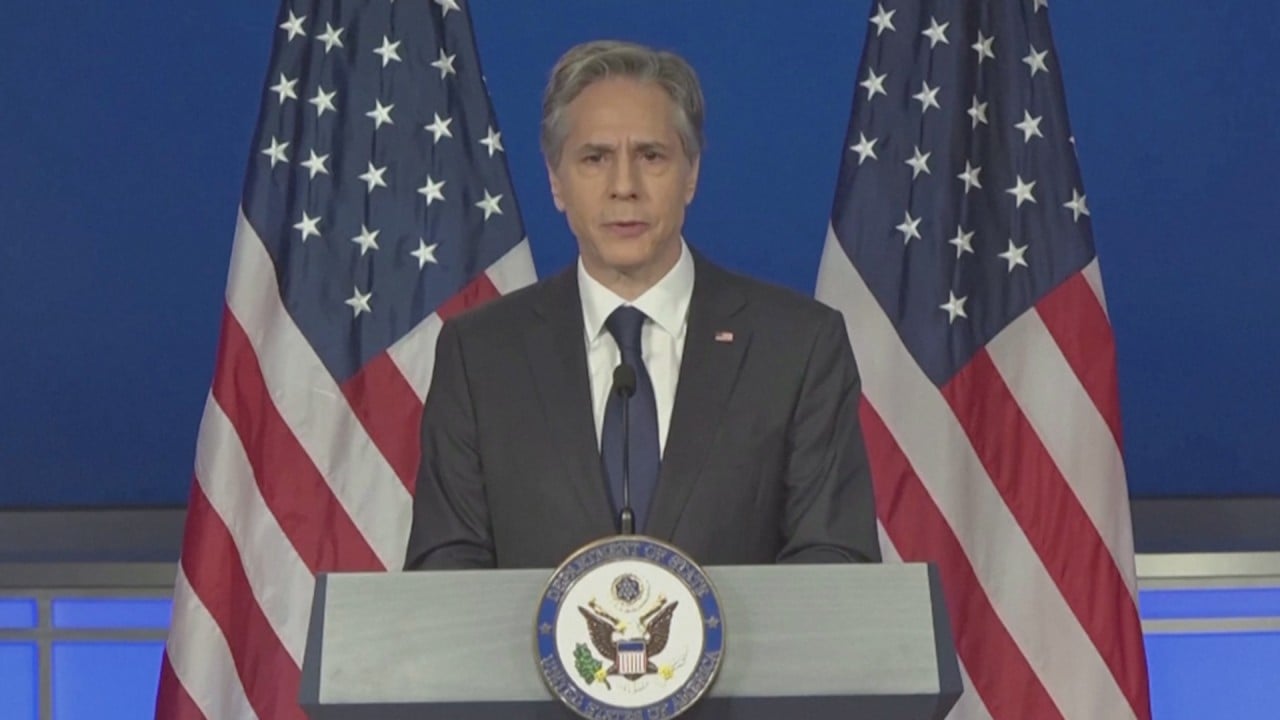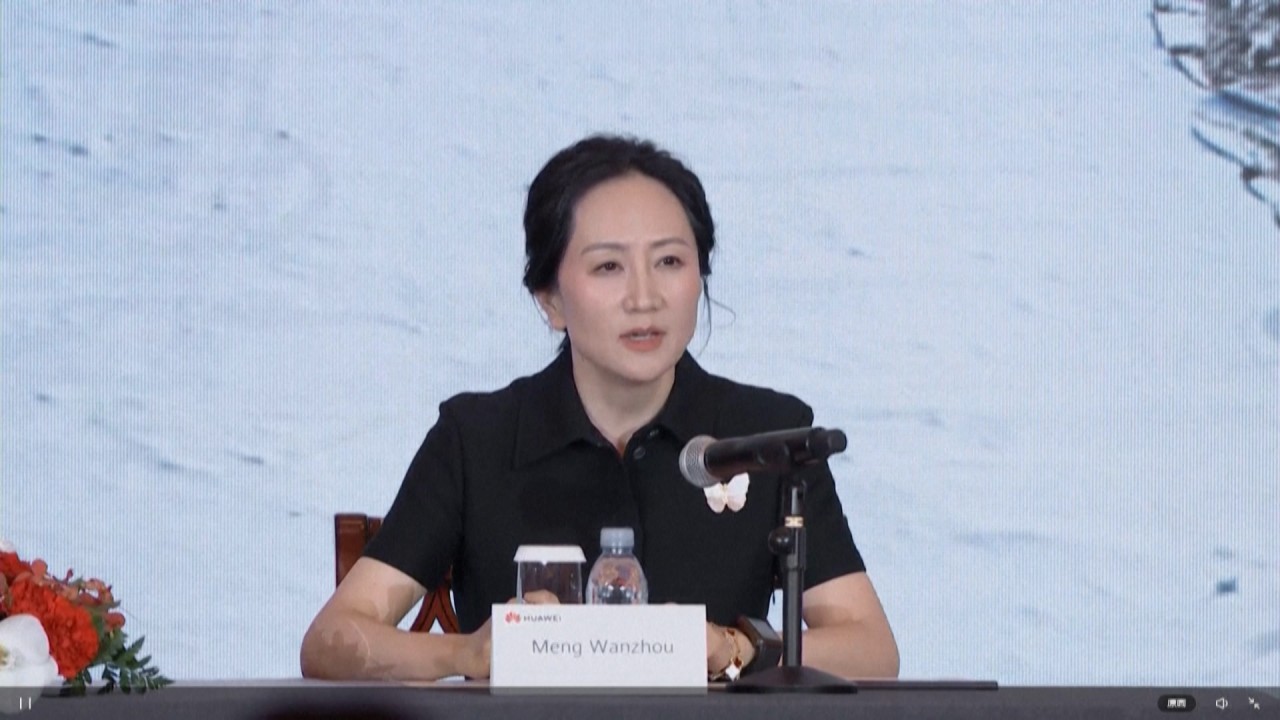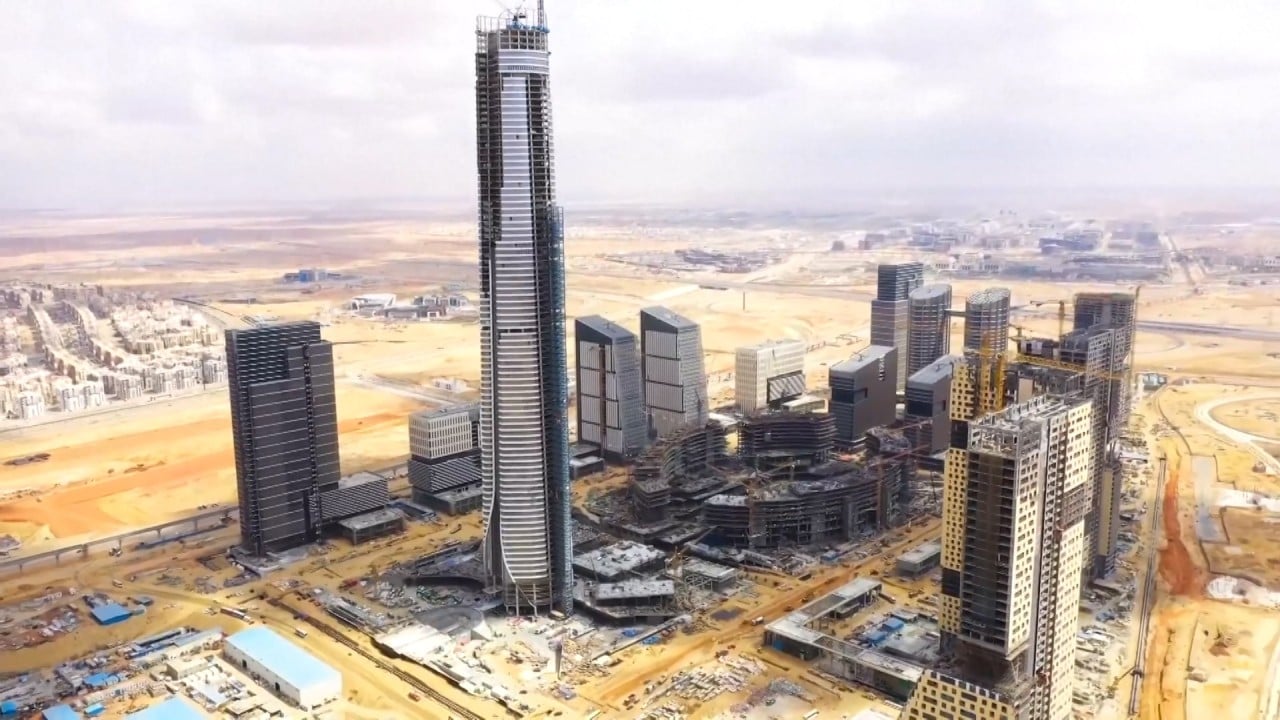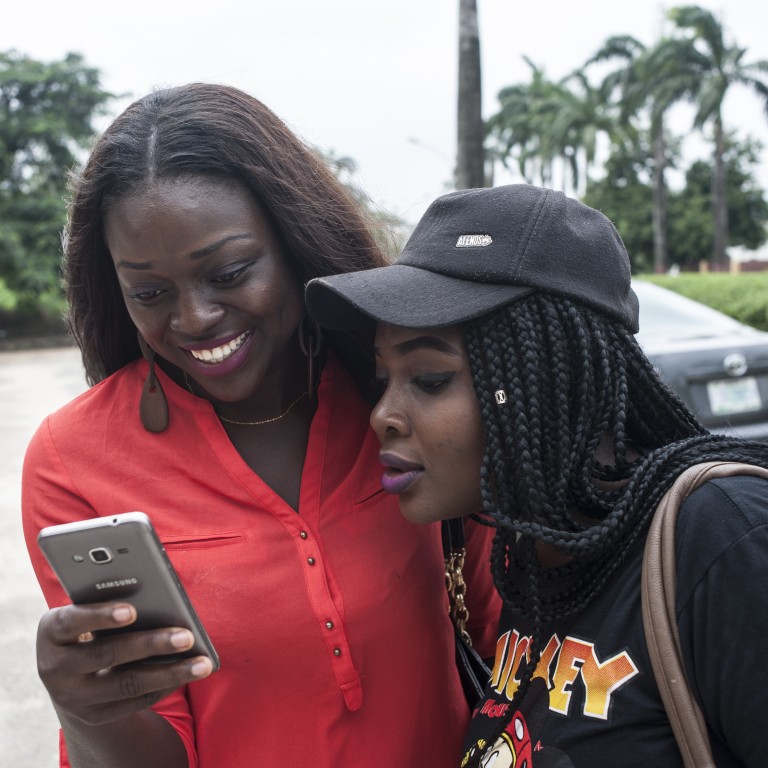
US takes China rivalry over African influence underwater, with high-speed internet cable spanning continents
- US-China tussle reaches critical digital infrastructure, as Washington warns world against Chinese dominance and alleged spying
- New US-funded Southeast Asia–Middle East–Western Europe 6 submarine line comes in response to Chinese-led transcontinental Peace cable
Blinken’s announcement in South Africa, during a three-nation tour of the continent last week, comes as US-China rivalry heats up over control of critical communication infrastructure, with America warning the world against Chinese digital dominance and alleged espionage aims.
Stretching across 17,000km (10,560 miles), from Southeast Asia through the Middle East and onwards to the Horn of Africa and Europe, the US-funded submarine cable line will deliver high-speed connectivity to more than a dozen countries across continents.
The Southeast Asia–Middle East–Western Europe 6 (SEA-ME-WE 6) submarine telecoms cable is one of the flagship projects of the US$600 billion PGII, for which Washington aims to mobilise another US$200 billion over the next five years.
“The way this infrastructure is built will reverberate for decades,” Blinken said in Pretoria, South Africa, on August 8.
China’s loans to poor nations in the spotlight as IMF tightens debt scrutiny
“That’s why it’s so important for countries to have choices, to be able to weigh them transparently, with the input of local communities without pressure or coercion,” Blinken added.
The US-backed SEA-ME-WE 6 cable project is seen as a response to the 15,000km Chinese-sponsored Pakistan & East Africa Connecting Europe (Peace) cable spanning the Indian Ocean and Mediterranean Sea, part of Beijing’s Digital Silk Road initiative under the belt and road.
Through Huawei Technologies Co and other domestic companies, China has funded and set up massive information and communications technology (ICT) infrastructure across Africa, which has left the US worried.
Biden signs legislation to tighten US restrictions on Huawei and ZTE
Huawei has either completed or is building multimillion-dollar data centres and cloud services in many African countries, including Zimbabwe, Senegal, Zambia, Togo, Tanzania, Mozambique, Mali and Madagascar.
The Chinese tech giant is also powering 5G in Africa, while the current African 4G infrastructure depends to a large extent on support provided by Huawei.
Equipment for the Peace cable is being supplied by HMN Tech (formerly Huawei Technologies Co. Marine).
Washington has in recent years banned Huawei and some Chinese companies and added them to its commerce department “entity list”, citing national security and foreign policy concerns over China’s alleged attempts to monopolise networks and use them for espionage.
When the Trump White House unveiled a “Clean Network” initiative in 2020, to safeguard US “citizens’ privacy and companies’ most sensitive information from aggressive intrusions by malign actors, such as the Chinese Communist Party”, several European nations and tech companies signed up to allow “only trusted vendors” in their 5G networks.
Huawei has denied those allegations, and Beijing rejects claims that it takes part in industrial espionage.
The US has been dissuading African countries from using Chinese technology over similar concerns. In Angola, for instance, it is sponsoring the expansion of 5G access with “trusted technology components”, as American diplomats put it.
In May, while on a trip to Angola, US Deputy Secretary of State Wendy Sherman warned that, “when countries choose Huawei, they are potentially giving up their sovereignty. They are turning over their data to another country.”
Her comments raised hackles in Beijing, with foreign ministry spokesman Zhao Lijian saying “groundless and denigrating remarks about China only serve to expose the US’ malicious attempt to contain China and sow discord in China-Africa cooperation”.
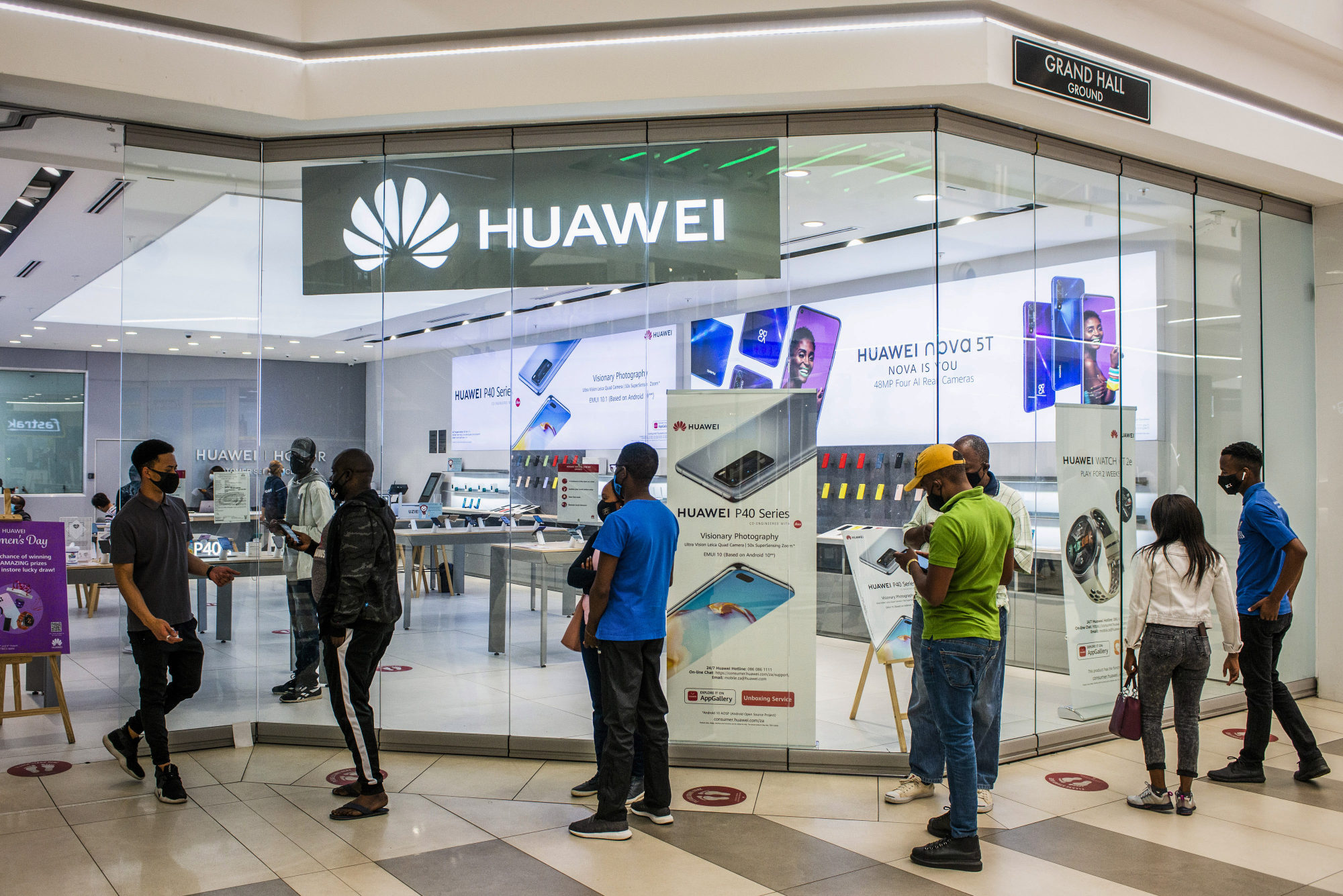
“There is not a single case of cyber security accident, surveillance or wiretapping in the course of the cooperation [in Africa],” Zhao said. He added that, under the Global Initiative on Data Security put forward by China, “we explicitly urge IT companies not to install backdoors in their products and service”.
The US administration has long expressed security concerns about the increasingly dominant position of Chinese firms, including Huawei and ZTE, in providing radio access network technology across Africa. Under the PGII umbrella, G7 governments are expected to incentivise their telecoms companies to expand in the expanding African markets.
Geo-economic competition in Africa is rapidly becoming concentrated in the IT sector, according to Eyck Freymann, author of One Belt One Road: Chinese Power Meets the World, and Indo-Pacific director at Greenmantle, a macroeconomic advisory firm.
“The US government clearly recognises that it must do more to compete with China in the tech sphere in Africa,” Freymann said.
“While it will never be able to match Chinese investments dollar for dollar, Washington will look for a few high-profile projects to support that highlight the United States’ unique strengths and selling points.”
He said Africa still suffers from a vast infrastructure deficit in terms of telecoms and broadband. “Whichever superpower claims a competitive edge in providing this infrastructure will enjoy wide-ranging strategic benefits in the years to come.”
Yun Sun, director of the Stimson Centre’s China programme in Washington, said that digital space and IT have become a focus of US-China rivalry in Africa, with Chinese digital dominance a particular concern.
“Some would say it is already too late for the US to launch into this field because China has been working in this space for decades building infrastructure. But looking down the road and the potential division in cyberspace, it is necessary for the US to be in the game,” Sun said.
“I think it offers Africa at least an alternative to what China has provided.”
“[However,] it raises questions about the future – whether the African continent will be divided into two digital spheres that are decoupled from each other for security concerns,” he added.
How the US lost Africa to China over new disease control headquarters
Cameron Hudson, a former US government official who is now a senior associate at the CSIS Africa think tank, said there is certainly a battle over control of information in Africa. “Washington believes that any country using Huawei or other Chinese telecoms technology makes those countries susceptible to Chinese state intelligence,” Hudson said.
He said the US will continue to try to dissuade countries from using Huawei technologies, “but at the same time Washington is offering African countries no credible alternatives and is not able to direct US telecoms companies to try to enter the Africa market”.
The US is putting US$300 million into financing, building and operating data centres across Africa, Blinken announced in Pretoria as he unveiled the US strategy for sub-Saharan Africa.
Henry Tugendhat, a senior policy analyst with the China team at the US Institute of Peace, said this is all about the next frontier of technological competition in Africa: cloud computing.
“African markets need cloud computing services at ever increasing rates, and it’s already been a huge growth market on the continent in the past three years alone,” he said.
But even with this increased demand, a lot of the biggest cloud service providers have been slow to move in until those markets become more profitable for them, Tugendhat said.
“I see Blinken’s announcements as a nudge and support to US cloud service providers to dive in and ride this wave of African demand,” he said.
Heads of FBI and MI5 raise alarms about Chinese spying in rare joint speech
On the business side, he said all of these newly built subsea cables will go through data centres at their landing points and hyperscale cloud service providers will seek to capitalise on the traffic flowing through those transit points.
“This competition is first and foremost played out between the businesses themselves; e.g., AWS, [Microsoft] Azure, Alibaba [the South China Morning Post’s parent company], Tencent, Huawei and Google,” Tugendhat said. “But there are certainly geo-political ramifications to those companies’ operations and infrastructure.”


